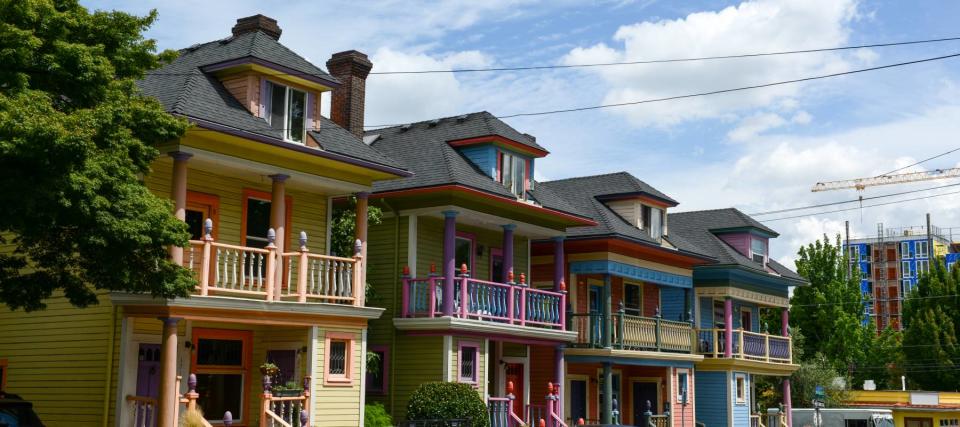Mortgage rates drop to new 5-month low and give 14M a reason to refinance

Mortgage rates have fallen for a third consecutive week, making refinances an even more attractive proposition for millions of U.S. homeowners who are still sitting on older and costlier loans.
Average rates on 30-year home loans dropped even further below the 3% mark last week, to a new five-month low, a leading survey says. Today's mortgage rates can provide a typical refinancer with hundreds of dollars in monthly savings, according to other new data.
30-year mortgage rates

The average interest rate on America's favorite home loan, the 30-year fixed-rate mortgage, dipped last week from 2.90% to 2.88%, mortgage giant Freddie Mac reported on Thursday.
Rates are the lowest since the week of Feb. 18, and 30-year mortgages are even cheaper than they were a year ago, during some of the darkest days of COVID-19, when the average rate was 2.98%.
“Since their peak at 3.18% in April, mortgage rates have declined by 30 basis points,” notes Sam Khater, Freddie Mac’s chief economist. A basis point is one-hundredth of 1 percentage point.
Despite the ongoing declines, today's rates under 3% are unlikely to last, experts say. As the economy shakes off the effects of the coronavirus crisis, it may be only a matter of time before the Federal Reserve begins reducing its pandemic management strategies, including holding interest rates at historic lows.
"Homeowners and buyers should not get too complacent thinking that 30-year rates will stay below 3%," Corey Burr, senior vice president at TTR Sotheby’s Real Estate, tells MoneyWise. "They should act now to refinance, if it makes economic sense for them."
15-year mortgage rates

The average rate on a 15-year fixed-rate mortgage saw a modest increase last week, rising from 2.20% to 2.22%. But 15-year loans are considerably cheaper than than they were at this time last year, when the average was 2.48%.
The low cost of fixed-rate mortgages matches the low yields (interest) on 10-year Treasury bonds. Once those yields begin ticking upward, fixed mortgage rates are likely follow suit.
But one ongoing Fed measure could help hold down bond yields and mortgage rates. To support the economic recovery, the central bank each month is expected to keep buying up at least $40 billion in mortgage-backed securities, which are investments made up of bundles of home loans.
"In short, the Fed thinks that there is still work to do to get the economy back on track, which will keep mortgage rates low for the remainder of the year," says Realtor.com senior economist George Ratiu.
Freddie Mac just adjusted its forecast for 2021 and now looks for 30-year fixed mortgage rates to average 3.1% throughout this year, down from its April prediction of 3.2%.
5/1 adjustable mortgage rates
Rates on 5/1 adjustable-rate mortgages, or ARMs, last week were averaging 2.47% last week, down from 2.52% the week before.
At the same time a year ago, the 5/1 ARM averaged 3.06%.
ARMs typically come with cheaper rates than those attached to fixed-rate loans — at the outset, anyway. After an initial fixed-rate phase, the interest rate adjusts in line with the prime rate or some other benchmark.
A 5/1 ARM has a five-year fixed-rate period followed by adjustments every (one) year after that. Because the rate can move up or down, adjustable-rate mortgages can sometimes be hard to budget around.
Refi would benefit nearly 14 million homeowners

Given the past year's historically low mortgage rates, you might assume that homeowners have been flooding their lenders with refinance applications. But that hasn't been the case.
A survey conducted by real estate platform Zillow found only 22% of eligible homeowners refinanced their mortgages between April 2020 and April 2021. Almost half of them saved $300 or more a month with a refi.
New figures from the mortgage data and technology firm Black Knight show that with 30-year rates at their current levels, 13.9 million homeowners could save an average $293 a month by refinancing their homes.
If you’re a homeowner who's been putting off refinancing, don’t be intimidated by the process. Start by gathering and comparing mortgage offers from at least five lenders. From that point on, you won’t have to do anything more complicated than what you had to do when you took out your original mortgage.
When you apply for a loan, for either a refi or a home purchase, lenders will look carefully at your creditworthiness. Today it's easy to check your credit score for free to see if you need to boost it before you start approaching lenders. The higher your credit score, the lower your mortgage rate is likely to be.
And if you ultimately rule out a refi, you might lower the cost of homeownership by scoring a better deal on your homeowners insurance. A little comparison shopping is all you need to find out if you’re overpaying. The same strategy could save you hundreds a year on car insurance, too.
